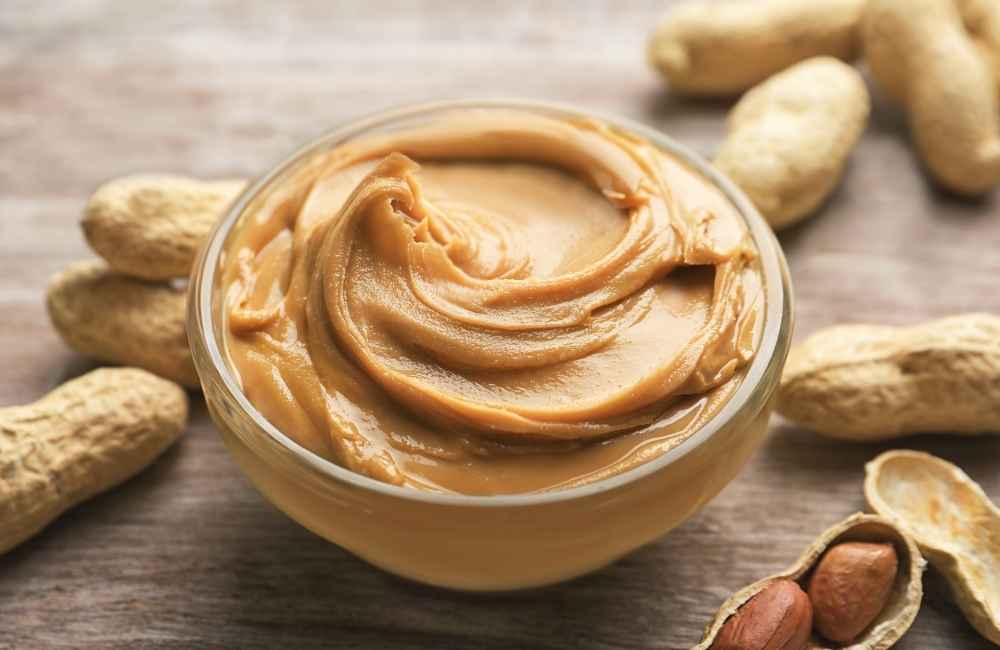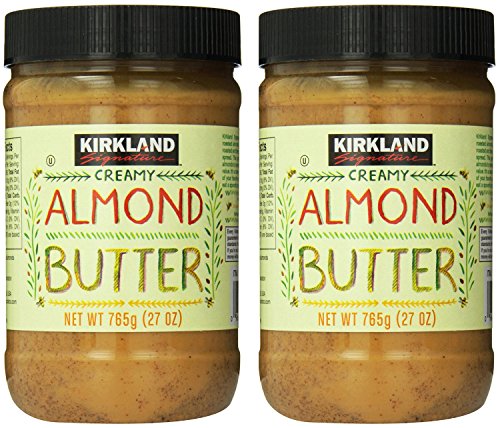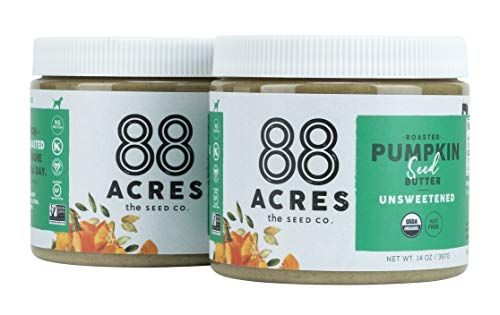Peanut butter is one of those must-have spreads in every pantry. Unfortunately, it’s not every dog’s treat. The fact that you’re reading this means that your furry friend would rather cut off their paws than partake in this nutty treat. Sorry, you had to find that out the hard way.
As disappointing as it may be, there are plenty of alternatives on the market shelves. This post will look into some of them and give you a healthier option for that delicious treat. Notice I said ‘healthier’ – it’s because peanut butter can be toxic to your dog’s health. More on this later in this post.
Whether you want to treat your anti-peanut butter canine to similar alternatives, or you want to adopt a canine-friendly diet, we got you. Here are the best options for peanut butter:
Quinoa
Have you ever heard of ‘quinoa’ before? You probably haven’t, but you’ve heard of ‘grains.’ Well, they’re special seeds that serve as a healthy alternative to grains.
Your pup stands to benefit a great deal from quinoa. Unlike peanut butter, it’s non-toxic to dogs. Some dry dog foods use quinoa as a key ingredient.
Quinoa is also a splendid alternative to soy, wheat, or corn. These are starches commonly used in the production of kibble. The B-vitamins in quinoa are also used in most dog foods since they’re rich in minerals such as iron and magnesium.
Quinoa is full of helpful antioxidants like kaempferol, quercetin, and flavonoids, which help reduce free radicals, thereby preventing life-threatening diseases in the form of cancers. The antioxidants in quinoa also boost your dog’s cardiovascular system and fight inflammation.
Sesame Seed
Sesame street, sorry, the seed is perfectly safe for canine consumption. It’s non-toxic and widely used in most dog foods and human foods.
Sesame seeds are rich in nutritional content such as selenium, calcium, manganese, and phosphorus. Due to their rich fiber content, sesame seeds help prevent constipation and keep your dog’s digestive tract in check.
The rich calcium content helps to keep your dog’s bones solid than ever. Calcium works together with copper, which helps keep your dog safe from joint pain.
If your canine companion also has problems absorbing iron into their bloodstream, they can benefit a great deal from sesame seeds. The antioxidants in these seeds will also protect your dog from various forms of cancer.
Like everything else, sesame seeds in excessive amounts can be quite harmful. It may lead to, among other things, bowel irritation, vomiting, diarrhea, etc.
Cashew Nut Butter
It would be best if you made cashew nut butter from either cooked or roasted cashews. Giving your furry friend a raw cashew nut may trigger a toxic reaction. Raw cashews contain a certain kind of toxin. To eliminate the toxins, they need to come in contact with high temperatures in the form of roasting.
Cashew nut butter has a high-fat content. While it’s safe for your doggy companion, keep in mind that the high-fat content might lead to an upset tummy.
A treat once in a while is okay. But be careful not to go overboard. If you wish, you could also give your dog unrefined cashew nuts, provided you crush and remove their shells.
When swallowed whole, cashew nuts might lead to intestinal obstructions that often lead to medical treatment. I’m pretty sure you don’t have those extra dollars to spare.
Chia Seeds
Here’s another class of grain you’ve probably never heard of before. Chia seeds are round in shape, tiny in size, and can easily absorb water. Despite their small size, chia seeds have a variety of health benefits to dogs.
These seeds are known to aid in digestion, promote weight loss, lower blood pressure, and so on.
Chia seeds are rich in omega-3 fatty acids, fiber, manganese, and calcium, with each nutritional content having a specific function in your dog’s body. Omega-3 fatty acids maintain a dog’s coat/skin, brain, and eye health. The fiber boosts the digestive functioning, the manganese keeps your dog’s joints in check, while the calcium contributes to strong, healthy bones.
Before giving chia seeds to your dog, the recommendation is that you soak them in water first. They’ll absorb the moisture, grow and make it a lot easier for your dog to digest.
Almond Butter
There’s a heap of long-term benefits of feeding your dog with almond butter. Almond butter is rich in a host of significant vitamins that are more than necessary for your pup’s growth and development.
Almond butter is rich in the B3 Vitamin that helps keep your dog’s coat shiny, strong, and healthy. It also helps in supporting the eyes and liver.
Almonds also have a rich Vitamin E content that helps eradicate toxic free radicals away from your canine’s cells which will go a long way in increasing their immune system function.
Training your dog to eat almond butter isn’t as difficult as you think. Treat it to this butter at least once every two weeks. Give them at least one or two spoonfuls, depending on their size.
However, please be aware that too much almond butter can cause an upset tummy for your dog. Give a small to moderate amount.
Pumpkin Seed Butter
Pumpkins are healthy treats for both humans and dogs alike. You can give your dog raw or cooked pumpkin. It’s best to check with your dog’s doctor to determine which pumpkin percentage to incorporate into your dog’s diet.
Pumpkin seed butter is a convenient and healthy alternative to peanut butter for so many reasons. Steer clear from feeding your dog canned pumpkin pie filling since it contains toxic sodium and sugar. Purchase the raw pumpkin seeds and discuss with your dog’s vet the right amount to feed them.
Pumpkin seeds contain cucurbitacin, a form of amino acid that helps in eliminating and paralyzing parasites from your dog’s digestive system. You can feed pumpkin seeds to your dog, either ground or raw.
Pumpkin seeds act as natural dewormers and offer the highest form of protein.
Sunflower Seed Butter
Sunflower seed butter has essential minerals and vitamins that benefit your dog’s health in the best ways. Ensure the sunflower seeds are unsalted, without any form of artificial flavoring. Peel them first before making butter out of them.
When given in limited amounts, sunflower butter is a yummy and healthy treat for your canine companion. A rule of thumb is to feed your dog about 10% of its average calorie intake.
Steer clear from making sunflower seeds a substitute for their regular food. Sunflower seed butter is relatively high in fats and calories. A single cup of sunflower seeds contains about 269 calories.
Sunflower seed butter tastes a lot like peanut butter. It will, therefore, be no problem to sneak this rare treat into its diet. Sunflower seed butter is way more nutritious.
Cream Cheese

We all love cream cheese. Not only is it tasty, but it’s also a rich source of fatty acids, minerals, vitamins, and protein. These are all beneficial to your dog’s health.
Additionally, cream cheese also has high-fat levels that can be toxic to your dog’s health. If you’re to give this to your dog, ensure it’s a treat and nothing more. A rule of thumb is to measure at least one tablespoon.
Cream cheese is considered the first treatment that you should ever give to your dog. It contains an adequate level of minerals, vitamins (A and B), protein, calcium, all of which can be beneficial supplements to your dog’s health.
Serve the cheese in moderation and not as a meal replacement. Keep in mind also that most canines are lactose intolerant. If your dog happens to be among them, don’t serve them cheese.
Hazelnut Butter
Hazelnut is jam-packed with essential nutrients like Vitamin E, magnesium, copper, and thiamine, to name a few. These are essential for boosting your dog’s energy levels, immune system, and general quality of life.
The one thing that will appeal most to your pup about hazelnut is its sweet taste. These nuts are a delightful daytime treat that no dog would pass.
The best way to test your dog’s response to this product is by serving them with a small teaspoon of butter. If they lick the spoon dry and ask for more, that’s a sure sign that they enjoy it and would like to have some more.
Hazelnut butter is also easy to digest. The best thing about it is that you can give your dog a reasonable amount without having to deal with any digestive issues (as is the case with most foods on this list).
Yogurt

Yogurt is among the best treats you can ever give your dog. If your dog isn’t a huge fan of pills, pop them into your dog’s delight.
Yogurt is high in protein and calcium. It also acts as a probiotic, which is excellent for your dog’s digestive system. Ensure it’s completely plain and void of any artificial sweeteners.
Suppose you find yogurt with plenty of live cultures like Greek-style yogurt, the better. These types of yogurt have significantly lower lactose levels compared to regular yogurt. Yogurts are also great when frozen. On a hot day, they’re the ideal canine enrichment treat.
Pour your yogurt into your ice cube tray and add in some canned pumpkin for extra nutrients. Freeze it for one or two hours and give it to your dog. It will thank you for as long as it lives.
Yogurt contains a good kind of bacteria that helps improve your pup’s intestinal health, excluding the lactose that might be a tad difficult for them to ingest.
Sweet Potato Chews
If your looking for a peanut butter alternative then why not try some tasty dog treats and snacks? Sweet potato chew contains no artificial ingredients. So you can be sure your not harming your dogs health. The snack is also incredibly simple. All it is, is just dehydrated sweet potato.
All hail the sweet potato for it is also rich in nutrients. Sweet potatoes contain vitamins and minerals notably vitamins B6, C, and A.
Sweet potatoes are also high in fiber. Fiber is necessary for digestion and healthy bowel movements.
Dog biscuits – Blue Wilderness Trail Treats
A great peanut butter replacement are dog biscuits. Made with a healthy mix of protein, fats and carbs, healthy dog biscuits are a perfect snack for your doggo. The ingredients are as clean as they can be – being free from soy, wheat, and corn.
However, the greatest ingredient is Salmon. The salmon is real and so nothing artificial. A perfect protein snack that will push your dogs taste buds to the extreme!
Protein Bites
There are tons of protein bites made specifically for dogs. One popular choice is Merrick Power Bites. This protein bite comes in a variety of delicious flavours ranging from chicken, rabit and beef, to salmon and turducken. Omega 6 and 3’s are included for healthy skin and coat.
Merrick power bites are free from corn, wheat and soy. However, be aware that it does contain brown sugar and a preservative called citric acid.
Health Effects of Feeding Your Dog Peanut Butter
As mentioned earlier, peanut butter is an excellent treat for your pup, but it has its fair share of health risks. Here are a few reasons why you should limit your dog’s peanut butter consumption:
Peanut Butter is Full of Lectins
Peanuts are more legumes than they are nuts. Why’s that a big deal? Well, legumes are exaggeratedly high in lectins.
Lectins are proteins that bind to carbohydrates and sugar. They’re known to trigger inflammation in dogs and often contribute to intestinal permeability (leaky gut). This condition has a link to itchy skin, rough fur coats, among other things.
Lectins are a doorway to autoimmune disorders such as food intolerance, allergies, itchy skin, and arthritis.
The systemic inflammation caused by lectins extends to your dog’s major organs, including the arteries, heart, liver, and so on. They also create inflammation on noticeable spots like the knees, hips, joints, and so on.
One thing to note is that lectins also increase your dog’s chances of glyphosate exposure. Although it’s not a direct health effect, it’s worth putting into consideration.
It Contains Rancid Fats
We’ve all heard the significance of including omega-three fats in our pets’ diet. However, peanut butter’s fat is more omega-six since the peanuts have been roasted and processed at extremely high temperatures. The high temperature renders the nuts oxidized and highly likely to alter your dog’s DNA.
Omega 6 fats play a crucial role in your pet’s life as their omega-three counterparts. However, they also overrepresent peanut butter and other processed foods in your dog’s diet. Fats of this kind are known to cause pancreatitis.
The pancreas in dogs digests most of the fat that your dog consumes. Feeding your dog foods such as peanut butter that have high-fat content and simple sugars might force your canine’s pancreas to digest more than it’s supposed to.
Yes, it’s possible to add other omegas 3’s in your dog’s diet, but lower the omega-six foods you feed your dog is far healthier and better.
It Contains Aflatoxin
Aflatoxin is a dangerous mold that’s prevalent in the peanut butter industry. It’s so commonplace to the point that it’s hard to find peanut butter that doesn’t contain Aflatoxin.
Even scarier is that the toxic mold is super common in ‘healthy and organic’ alternatives. The mold is because the peanuts used treatment hasn’t been done with chemicals such as glyphosate that could eliminate the mold, which is somewhat of a no-win situation. On the one hand, you have the option of feeding your dog toxic cancer-causing chemicals and toxic cancer-causing mold on the other. The best alternative would probably be to skip peanuts and other products that may contain them.
Most peanut butter is glyphosate-formulated and can cause severe complications with your dog’s digestive tract.
It Might Contain Xylitol
Xylitol is a type of artificial sweetener that’s primarily common in sugar-free snacks. Its also used in some peanut butter brands. In case you missed it, xylitol is super toxic when ingested. If you still want to treat your dog to peanut butter, steer clear from those labeled ‘sugar-free.’
Xylitol often leads to a sudden drop in blood sugar – a condition known as hypoglycemia. This condition leads to seizures, lethargy (depression and excessive sleepiness), stumbling, and confusion. When not treated early enough, hypoglycemia can lead to death.
Other than hypoglycemia, peanut butter also causes liver damage among dogs.
It’s a Harmful Allergen
If you thought that it’s humans alone who get allergic to peanut butter, think again. Some dogs can develop severe, moderate, or mild allergies upon ingesting or even tasting peanut butter. It gets even worse if the peanut butter contains xylitol.
Some symptoms of peanut butter allergies include:
- Agitation
- Collapse
- Swelling
- Hives
- Difficulty breathing
- Hotspots
- Bald spots
- Excessive licking
- Itchy and red skin
Peanut butter allergies in dogs occur in two types: skin allergies (atopic dermatitis) and anaphylactic. They come about when your dog ingests peanut butter, either periodically or in limited everyday portions.
If you think your dog has an allergic reaction to peanut butter or any other similar product, book an immediate appointment with your dog doctor. They’ll give a definitive diagnosis and treat it before it becomes a fatal affair.
Which Kinds of Dogs Should You NEVER Give Peanut Butter?
While there are those dogs that you can compromise and give limited portions of peanut butter, there are those that should never eat this nutty treat at any given time. The effects of peanut butter on these dogs can be very toxic if not fatal:
Those with Kidney Conditions
Most peanut butter brands have extremely high salt content, making them unsuitable for canines with kidney issues.
Overweight Dogs
Peanut butter is notorious for its high-fat content and excessive sugar levels – both of which are not great for your dog’s weight and overall health. It’s never the best treat to add to their diet, especially if they’re on a strict low-fat diet. If your reason for treating your overweight dog with peanut butter is to boost their protein intake, then maybe you need to consider alternatives such as chicken breast, tuna, etc. These are highly nutritious and good sources of lean protein.
Dogs on Strict Diet
I don’t recommend deviating your furry friend away from a strict diet or meal plan. Therefore, if your dog is already on a specific diet, incorporating peanut butter into the mix might upset their stomachs.
The scientific name for sudden diet shifts is ‘variable reinforcement.’ It might have adverse effects on your dog’s diet and overall digestion process. If possible, ensure you stick to one diet and keep peanut butter-free food in your meal plan.
Allergic Dogs
Some dogs are allergic to peanuts and related products. Such dogs should steer clear from peanut butter and stick to hypoallergenic treats. Instead, replace that nutty treat with low-carbohydrate alternatives such as the ones listed above.
If your dog doesn’t fancy any alternatives on this list, we recommend a freeze-dried raw treat made from novel proteins such as venison or rabbit.













